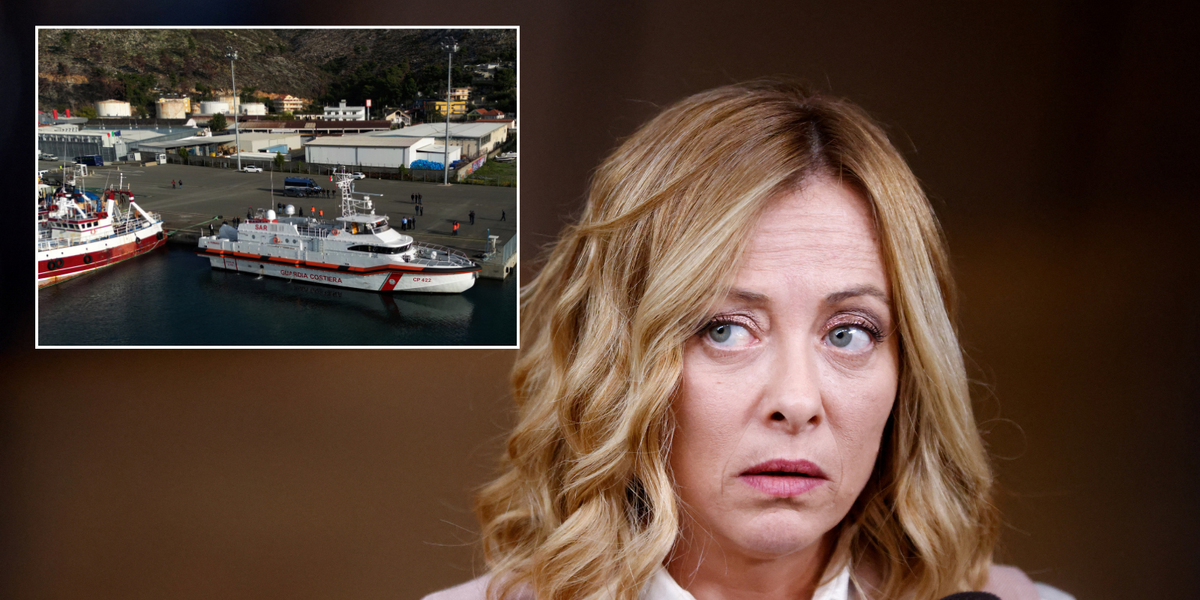Italian Court’s Ruling Undermines Meloni’s Offshore Migration Plan
In a significant legal setback for Italian Prime Minister Giorgia Meloni, an Italian court has ruled against her controversial plan to send migrants to offshore camps in Albania. This decision not only casts doubt on the feasibility of the initiative but also raises questions about the future of Italy’s migration policies and their implications for Europe as a whole.
The Offshore Camps Proposal
Meloni’s government had proposed a scheme that aimed to handle up to 36,000 migrants annually by relocating them to facilities in Albania. This ambitious plan, estimated to cost around £557 million over five years, was seen as a potential model for other European nations grappling with the ongoing migration crisis. The initiative was closely monitored by countries like Britain, which were considering similar approaches to manage illegal migration.
The first group of migrants, consisting of 16 men from Egypt and Bangladesh, had already arrived at the Albanian facilities. However, the court’s ruling on Friday has thrown the entire operation into jeopardy.
Court Ruling and Its Implications
The court’s decision was clear: migrants cannot be sent to Albania and must be returned to Italy. The judges determined that Egypt and Bangladesh were not safe countries for repatriation, aligning with a recent ruling from the European Court of Justice (ECJ) that emphasized the need for a comprehensive assessment of safety in potential repatriation destinations. The ECJ stated that a country cannot be deemed safe unless its entire territory is free from danger.
As a result of the ruling, 12 of the migrants were ordered to be brought back to Italy, while four others were exempted from repatriation due to their status as minors or vulnerable individuals. This legal determination has raised serious concerns about the viability of Meloni’s offshore camp strategy.
Political Reactions
The ruling has sparked outrage among members of Meloni’s hard-right party, Brothers of Italy. They condemned the decision as "absurd" and accused the judiciary of undermining Italy’s sovereignty by preventing the detention of migrants in Albania. Interior Minister Matteo Piantedosi announced that the government would appeal the court’s ruling, asserting the need to pursue the matter through judicial channels.
Ignazio La Russa, a prominent figure in Brothers of Italy, expressed disbelief at the court’s decision, while opposition leader Elly Schlein called for Meloni to "dismantle everything and apologize to the Italians." This political turmoil highlights the deep divisions within Italian politics regarding migration policy.
Criticism of the Plan
Critics of the offshore camp initiative had already raised concerns about its practicality and cost-effectiveness. Opposition MPs estimated that the expense of transporting the initial group of 16 migrants amounted to approximately £18,000 per person. Matteo Villa, a senior researcher, labeled the plan a "flop" and predicted it would lead to disaster.
The ruling has intensified scrutiny of Meloni’s migration strategy, which she had previously touted as a "new, courageous, unprecedented path" to enhance migrant repatriation. Despite her claims of growing support from other European nations for her approach, the court’s decision has undermined her position and raised doubts about the future of her policies.
Broader European Context
The implications of this ruling extend beyond Italy’s borders. The Albania model had been discussed as a potential framework for EU offshore deportation camps for failed asylum seekers, a concept that had previously been dismissed by Brussels as "neither feasible nor desirable." Meloni’s growing influence in the EU, coupled with her calls for stricter migration policies, has made her a key player in the ongoing debate over how to address the migration crisis in Europe.
As the situation unfolds, it remains to be seen how Meloni’s government will respond to this legal setback and whether it will alter its approach to migration policy. The court’s ruling serves as a reminder of the complexities and challenges that lie ahead in the quest for effective solutions to the ongoing migration crisis in Europe.
